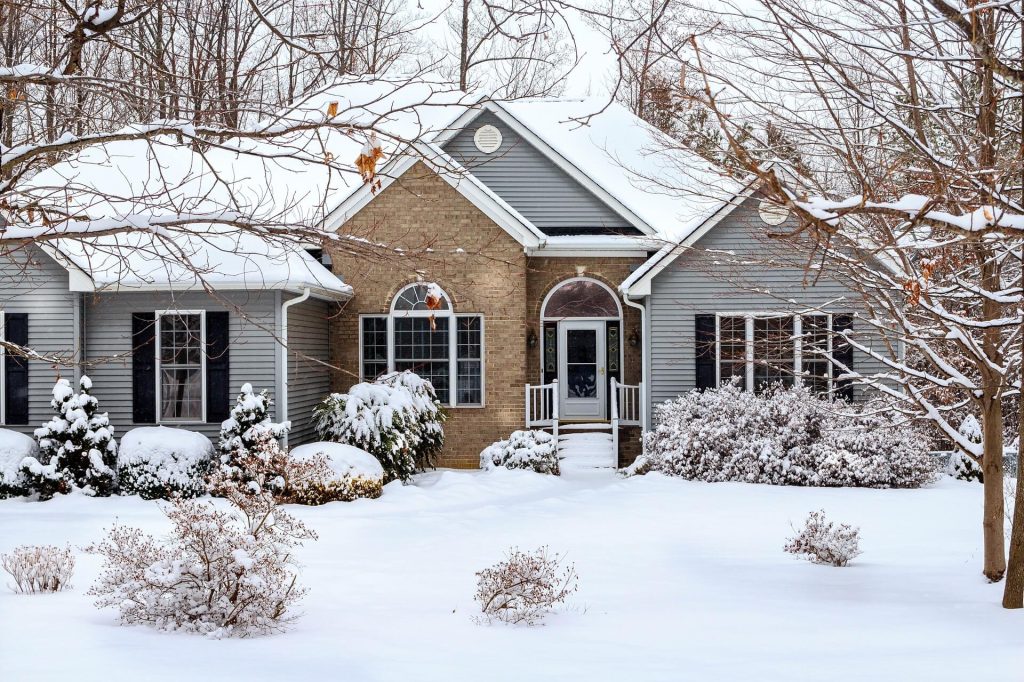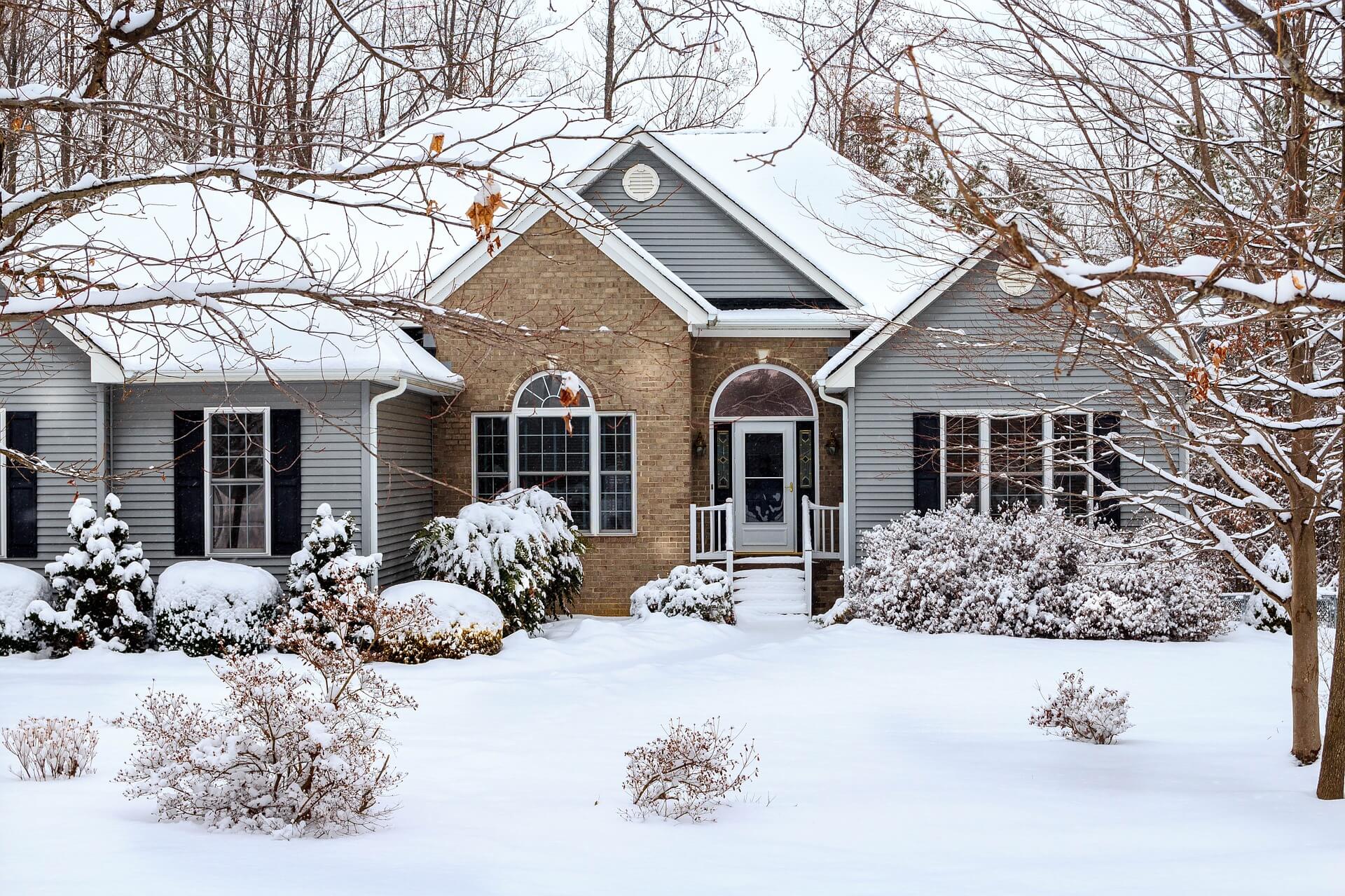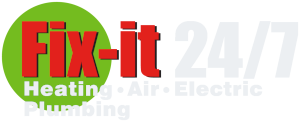Home Winterization Tips | Save Money and Energy This Winter

Winter is fast approaching and now is the perfect time to prepare in order to keep your home running smoothly, safely, and efficiently. Don’t be caught off guard this winter with a ruptured pipe, sky-high energy bills, or a dangerous carbon monoxide leak.
So save a few hours of your time to follow this simple and easy-to-follow home checklist we have prepared for you!
Winterize A/C System
Many manufacturers don’t recommend covering your outdoor air conditioner system since the cover can attract animals and create mold and moisture problems. Consult your manufacturer’s recommendations before covering your unit.
Follow these steps to winterize your air conditioner:
- Cut the power to your air conditioner (from the breaker box or on/off switch)
- Don’t cover your unit completely (unless suggested by your manufacturer)
- Protect the top of your unit with some wood held down by bricks.
- Do NOT forget to remove the cover before turning your air conditioner on.
- Fix any gutter or water runoff problems before winter, especially if they are above your outdoor unit.
- If you have window A/C units, remove them and store them in a dry area during the winter months.
Inspect Your Home for Drafts
Check your home for drafts as soon as you can. Every home has them. In fact, the average home has air leaks that when added up are equivalent to leaving a window open all day, every day (Energy Star).
Unfortunately, finding and sealing these leaks, gaps, and holes isn’t as simple as closing a window.
There are a couple methods for finding air leaks around your home:
- Get a lighted candle or incense stick and hold it near the edges of windows and doors. Flickering light or smoke will signify a possible draft.
- You can also use a very thin piece of toilet paper and hold it up around areas where you suspect a leak.
- For a professional diagnosis, contact your local HVAC company for information on home energy audits. Professional energy audits normally involve a “blower door test,” which can pinpoint all the areas around your home that are leaking air and energy.
Once you find your air leaks, you will want to seal them using the proper methods.
Here are a few tips for sealing air leaks around the home:
- Use weatherproof caulk for cracks and gaps that are ¼ inch or less.
- Use expandable foam spray for any gaps or cracks larger than ¼ inch.
- In addition to windows and doors, check for areas around wires, pipes, and lights.
- Cover and seal the big holes first (these are in your attic and basement).
- Contact a professional for help, especially in your attic and basement.
- You should also consider using heavy curtains for windows.
While finding and sealing air leaks around the home, if you come across any mold, moisture, knob/tube wiring, or signs of electrical or fire hazards, contact a professional right away.
Winterize Sprinkler System
Although you can pay your irrigation or plumbing company to winterize your outdoor sprinkler system for you, it’s possible to do it yourself. If you ignore this essential fall task, however, you might end up with a frozen and burst pipe or hose.
Keep in mind that even the most powerful air compressor won’t be enough to completely blow out the system. If you don’t own a home compressor, you can rent one at your local tool rental center. A 10-cfm (cubic feet per minute) compressor will probably be suitable for the task. Make sure you have all the tools you need:
- Air Compressor
- Air Hose
- Air Hose Adapter
Drain your outdoor hoses and irrigation system. Set the air compressor to a maximum of 80 PSI for PVC pipes and maximum of 50 PSI for flexible black polyethylene pipe. Next, turn the water supply off, close both valves on the backflow preventer, and connect your air compressor to the blow-out port. The other end should be connected to your air compressor. Then, simply blast the water out of your outdoor garden hoses with an air compressor.
If you have a mechanical sprinkler system that you are storing during winter, make sure you drain it before storing it.
Drain Water Hoses
Unless you want to spend money on garden hose replacements (and potentially an expensive water spigot repair), it’s a good idea to winterize your garden hoses.
While you might get away with neglecting this task, it’s not a risk we recommend taking. Fortunately, the task is extremely simple. Just lay your hose out and blast out water with an air compressor.
Another way to prepare your plumbing for fall and winter is to turn off outdoor faucets and those that are connected to hoses or bibs. Remove the hoses and just store them in your garage to prevent them from breaking or freezing. Ensuring that no water is flowing through your outdoor pipes and faucets will avoid freezing as well.
Furnace Tune-Up
Since you’ll be using your furnace more during fall and winter, it is imperative that you hire a licensed HVAC technician in to inspect your heating system before the cold season starts.
Here are some of the benefits of scheduling a professional furnace/heating tune-up every year:
- Prevents breakdowns and freezing hands and feet.
- Saves money on heating costs (up to hundreds of dollars every single year).
- Delays expensive HVAC repairs and replacements.
- Improves indoor air quality, especially important for winter weather.
- Keeps your home safe from fire and carbon monoxide hazards.
- Keeps your manufacturer warranties valid and up-to-date.
Heating and cooling costs account for about 50% of the average U.S. home’s total energy expenses. You can save hundreds of dollars every year by scheduling annual heating and cooling maintenance appointments. If you haven’t scheduled your annual furnace tune-up yet, now is the time to do so.
Your qualified HVAC technician will perform an overall inspection to identify safety hazards, maximize efficiency, and also perform a full cleaning and filter replacement.
Don’t forget to check your air filter every 30 days. Changing your air filter is especially important during the winter months. Wait no longer than 60 days to replace your air filter in the winter.
Always keep extra filters on hand so you never have the excuse of not changing them out. Choose air filters with a MERV (minimum efficiency reporting value) rating of 7-13 for the best air filtration for residential HVAC systems. Higher rated filters are better, but often require professional HVAC modifications to account for the thicker filters.
To avoid future headaches, follow these tips to winterize your home. Schedule heating maintenance service in Denver today or sign up for our home maintenance plan, the Fix-It Green Club. You can also give us a call at (303) 214-0277!
When Your House is in Trouble, Call the Green Bubble.
Service You Can Count On
We came from humble beginnings, having started as just a small family
business. And while we’ve experienced growth, Fix-It 24/7






